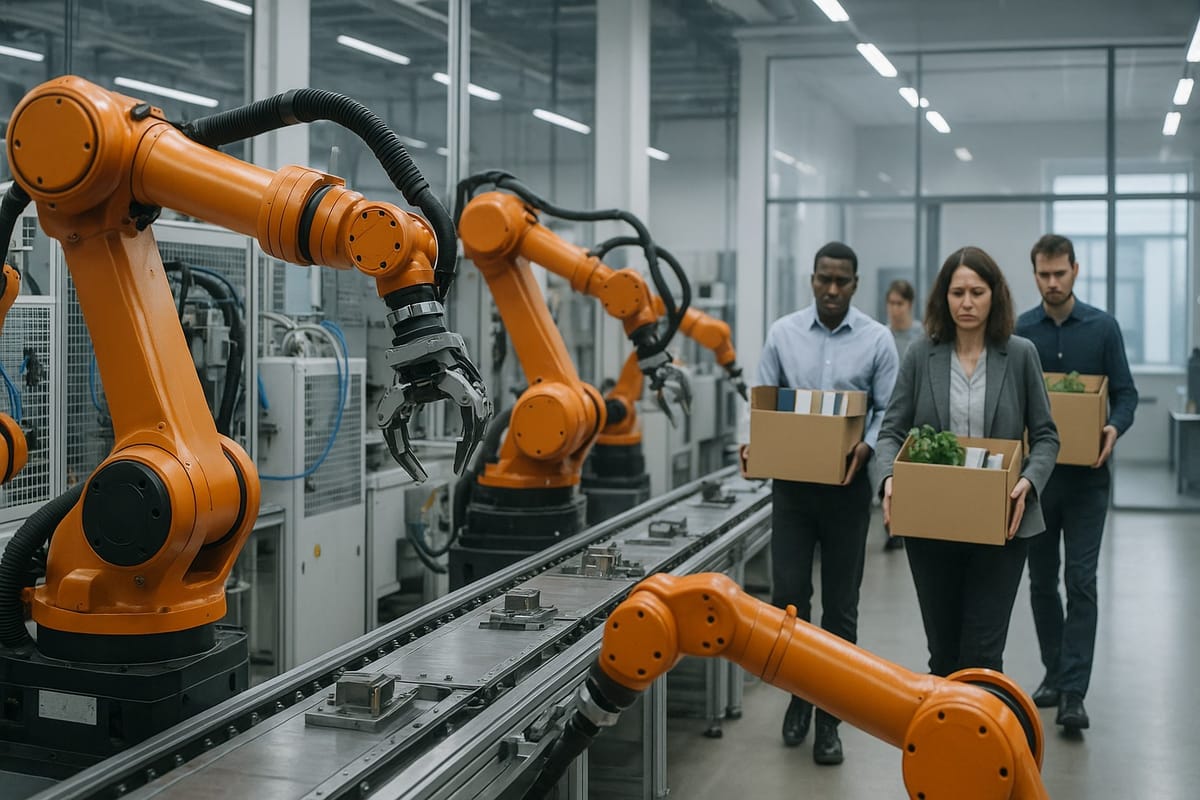Global Layoffs Surge Amid AI Automation
Mass layoffs due to automation and AI are sweeping global companies, cutting jobs across technology, manufacturing, and retail sectors.

Technological transformation has entered a new era with serious consequences for the global workforce. Multinational corporations are carrying out large-scale layoffs, spurred by efficiency drives through automation and artificial intelligence (AI) adoption. Since 2023, massive job cuts have occurred across various sectors—from technology and manufacturing to retail—signaling a fundamental shift in the structure of modern industry.
Massive Layoffs in Global Tech Companies
Microsoft is among the most prominent examples. In early 2024, the tech giant cut thousands of employees, mainly in software development and cloud divisions. This strategic move aims to support the integration of generative AI across products like Copilot, while also reducing operational costs. CEO Satya Nadella emphasized that AI is no longer just a complement but has become the new foundation for business processes and corporate decision-making.
Meta, the parent company of Facebook, Instagram, and WhatsApp, has also aggressively slashed more than 20,000 jobs since 2022. In its push for digital efficiency, Meta is shifting resources to AI and virtual reality development. Mark Zuckerberg dubbed 2023 the “year of efficiency,” underlining a commitment to eliminate processes that can be replaced by machines and algorithms.
Automation in Manufacturing and Energy Sectors
The impact of automation extends beyond technology to manufacturing and energy industries. Boeing, the U.S. aerospace giant, cut thousands of workers between 2024 and 2025 in production lines, quality control, and administration. The adoption of robotics and machine learning is the key driver, replacing human labor in many crucial functions.
In the energy sector, Chevron and other global oil giants are accelerating the digitalization of operations. The implementation of digital twin systems, AI-powered predictive maintenance, and automated field inspections has significantly reduced workforce needs. Chevron, for example, eliminated hundreds of field positions in favor of automated monitoring systems in exploration and drilling activities.
Retail, Logistics, and Space Exploration Also Affected
Retail and logistics industries are also experiencing a wave of mass layoffs. Walmart, Amazon, and Target have cut thousands of positions in warehouses and logistics. Robots and automated systems now take over many manual tasks previously done by humans, including automated checkouts and increasingly common warehouse robots.
In the space exploration sector, companies like SpaceX and Blue Origin have adopted high levels of automation in rocket production and monitoring systems. Efficiency is the top priority as companies strive to remain relevant amid global competition.
Current Facts and Survey Data
The threat of layoffs due to AI and automation is further underlined by the 2023 World Economic Forum (WEF) report. According to the “Future of Jobs Report 2023,” 41% of global companies project layoffs in the next five years, driven by AI and automation across all business lines.
WEF predicts that around 83 million jobs will be lost globally between 2023 and 2027, mainly in administration, banking, manufacturing, and customer service. On the other hand, the rise of AI is expected to create 69 million new jobs, especially in IT, data analytics, cybersecurity, and green energy sectors.
Business and Government Responses
Responses from governments and industry players to this layoff wave have been varied. Many countries are intensifying upskilling and reskilling programs to prepare workers for major changes. Retraining is key so that workers can transition to sectors more relevant in the AI era.
Meanwhile, the European Union and the United States are actively developing regulations to protect workers from the negative socioeconomic impact, while still supporting technological innovation.
Layoff Wave and the Future of Work
Automation and AI have fundamentally changed the global employment landscape. Cost efficiency, increased accuracy, and global competition pressures force companies to adapt quickly.
The phenomenon of mass layoffs due to automation and AI demands that human resources are ready to face this new era of work. This transformation also serves as a reminder that technological advancement must be balanced with fair social policies and effective adaptation strategies, ensuring the benefits of innovation are felt by all layers of society.





Comments ()